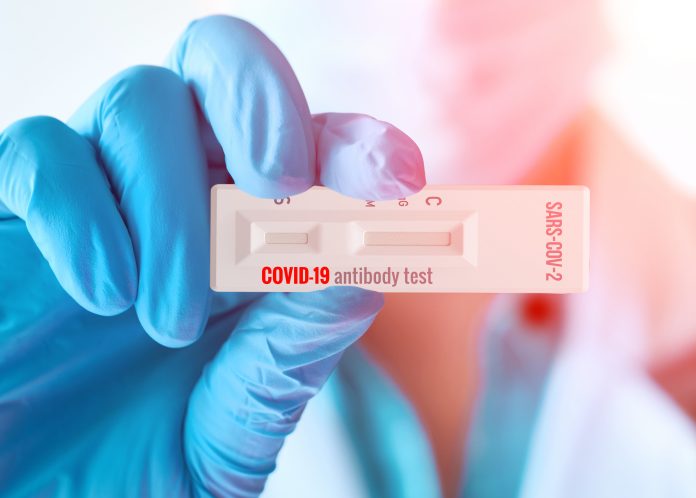A new Government survey has found that 9 in 10 adults have COVID-19 antibodies, but experts say more data is needed before ‘Freedom Day’
The new Coronavirus Infection Survey by the Office for National Statistics (ONS) estimates over 89% of adults in the UK had COVID-19 antibodies in the week beginning the 14th of June, but The London Medical Laboratory says that more data is needed on antibody levels before ‘Freedom Day’.
Around 9 in 10 adults were found to have antibodies in England, Wales and Northern Ireland, and 8 in 10 adults were from Scotland.
Dr Quinton Fivelman, PhD, the Chief Scientific Officer at London Medical Laboratory, says: “London Medical Laboratory’s White Paper reveals that most people have a far higher antibody response to a vaccine against COVID-19 than from a natural infection.
“Therefore, we need a quantitative measure of individuals’ responses to first and second jabs and catching COVID-19 naturally. The Government needs to send out a clear message that people who have previously had Covid get their vaccinations. Otherwise, plans for 19th July should be postponed.”
He explains: “The modelling revealed in the new ONS data reveals 87% of people in England had received one jab by 20 June, 69% had had both jabs and 89.8% tested positive for antibodies. That’s encouraging for the Government’s plans, but we need a better picture across the UK of the actual levels of antibodies people have – as recent research has shown a clear link between the level of antibodies and prevention of serious illness caused by COVID-19.
“The so-called “Freedom Day” COVID relaxation measures also look questionable when the data shows that, as of 20 June, only 31.6% of 16–24-year-olds had received one jab and just 16.9% were fully vaccinated. At the same time, modelling suggests that 59.7% in this group had produced Covid antibodies, indicating that a considerable number of young people are now catching the virus prior to vaccination.
“With that in mind, we have to wonder about measures such as reopening nightclubs. It’s exactly this age group who are most likely to visit clubs, which are generally poorly-ventilated areas where people are packed in tightly.”
Dr Fivelman continues: “COVID-19 antibody tests that detect the level of antibodies have been around for a while, but earlier ones were not always highly accurate. New “second generation” tests have now been introduced that are far more accurate and informative. For example, London Medical Laboratory offers the Abbott Diagnostics SARS-CoV-2 IgG II test. This assesses the body’s response to the spike protein on the outside of the virus. The spike protein is the main protein that is associated with the body mounting an immune response to the virus.
“These latest tests use a finger-prick blood sample that people can take in the comfort of their own home and then return to the lab using a supplied, first-class envelope.
“Whether people have been recently vaccinated or believe they have caught Covid-19 naturally, the new tests confirm whether an individual’s immune system has developed IgG antibodies. By providing a quantitative measure of the body’s response, they reveal how the immune system has responded to vaccination or confirm whether a recent infection was, in fact, COVID-19.”
Dr Fivelman has a further warning for the Government before next week’s decision about Freedom Day: “This virus has not been around long enough for scientists to be sure whether having IgG antibodies makes you immune – even at high antibody level. Research into this is ongoing, so do not presume you are completely immune, even with a positive antibody result. The Government must also keep this in mind when making a final decision on ending most COVID-19 restrictions.”











